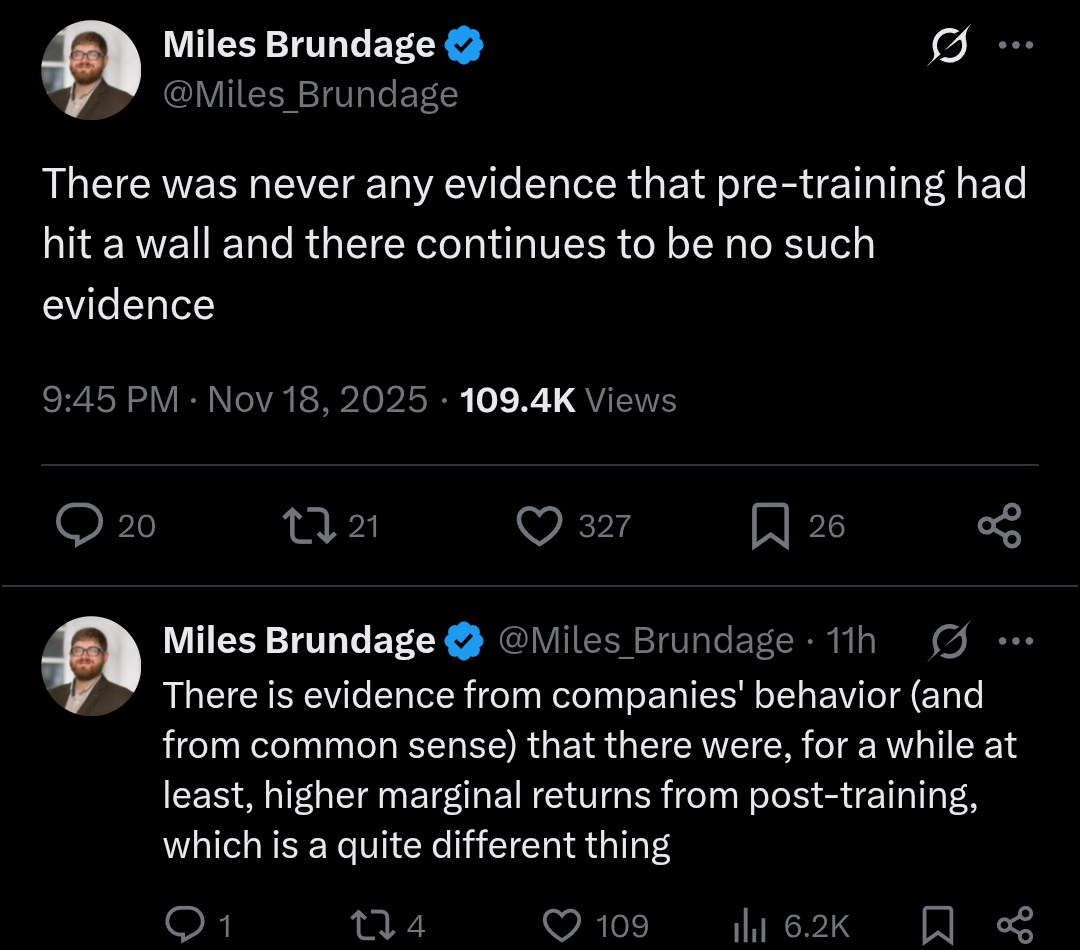
Will a pretraining algorithm for language models which meaningfully improves on the sample efficiency of next token prediction be widely known before 2027?
Some details:
The technique must involve self-supervised learning on unlabeled data
The technique must have documented scaling properties which meaningfully outperform next token prediction in test perplexity with respect to data, for whichever model architectures are popular by 2027
It's fine if there are tradeoffs with compute efficiency
It's fine if next token prediction outperforms the new technique early in training, or for small training runs, as long as scaling trends predict that the new technique would be better on runs using at least 10^26 FLOP and 15T tokens (roughly the budget of Llama 3 400B)
It must be accepted within the ML community that the technique is broadly superior to next token prediction (even if there are some tradeoffs) and has the potential to scale to outperform the best prior models trained using next token prediction
To validate the scaling potential of the method, it must be used to train a model which qualitatively matches or exceeds GPT-4 (if the above conditions hold before 2027, I will wait until July 2027 for such a model and will resolve YES if one is produced)
People are also trading
@JohnCarpenter Tokens are discretizations of data, generally text but possibly other modalities. In autoregressive language modeling, the goal is to produce probability distributions over token sequences. Currently, most tokenizers produce 0.75 tokens per word, but this might change. I’m not referring to latent space tokens. When I mention “15T” tokens in the resolution criteria, I’ll specify that this refers to an equivalent amount of unlabeled training data, even if tokenization methods change.
@RemNi My understanding of the method is that an autoencoder is pretrained and diffusion is used to model the latent space. I’m not familiar with how the technique can be used for autoregressive language modeling, but if there’s a way that works and its scaling is borne out in the manner required by the question, then it would count.
